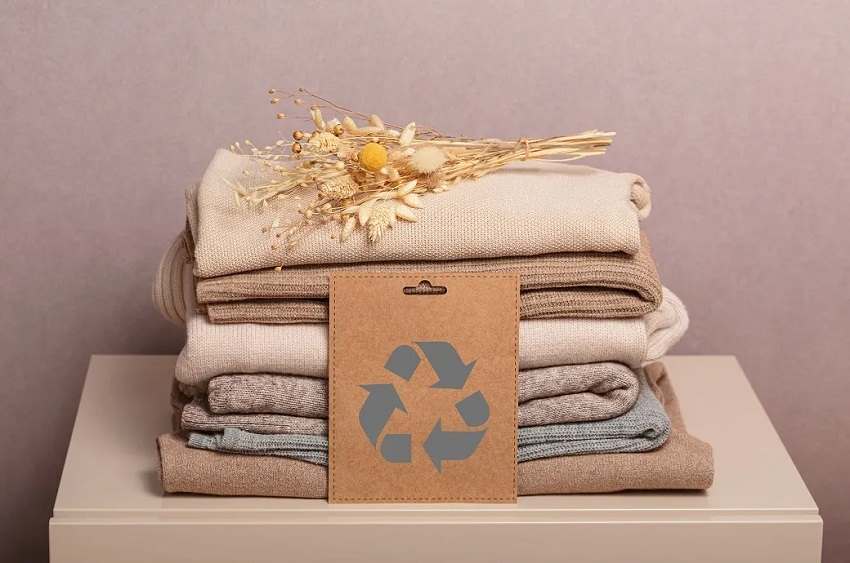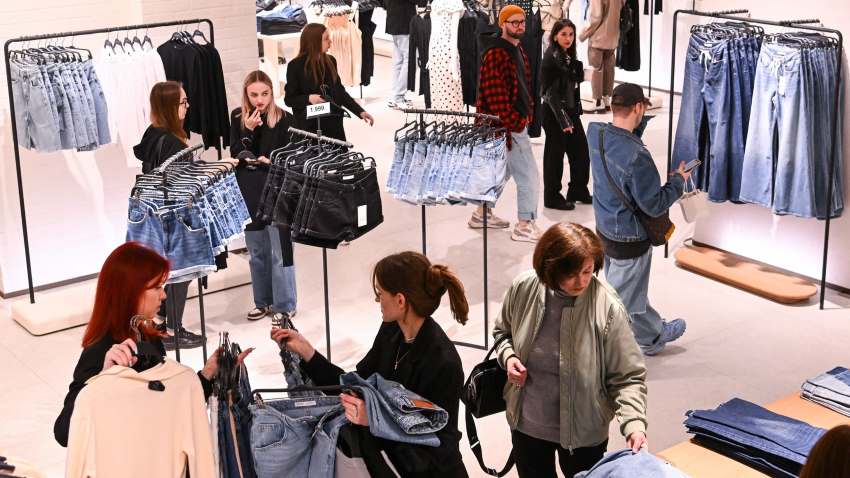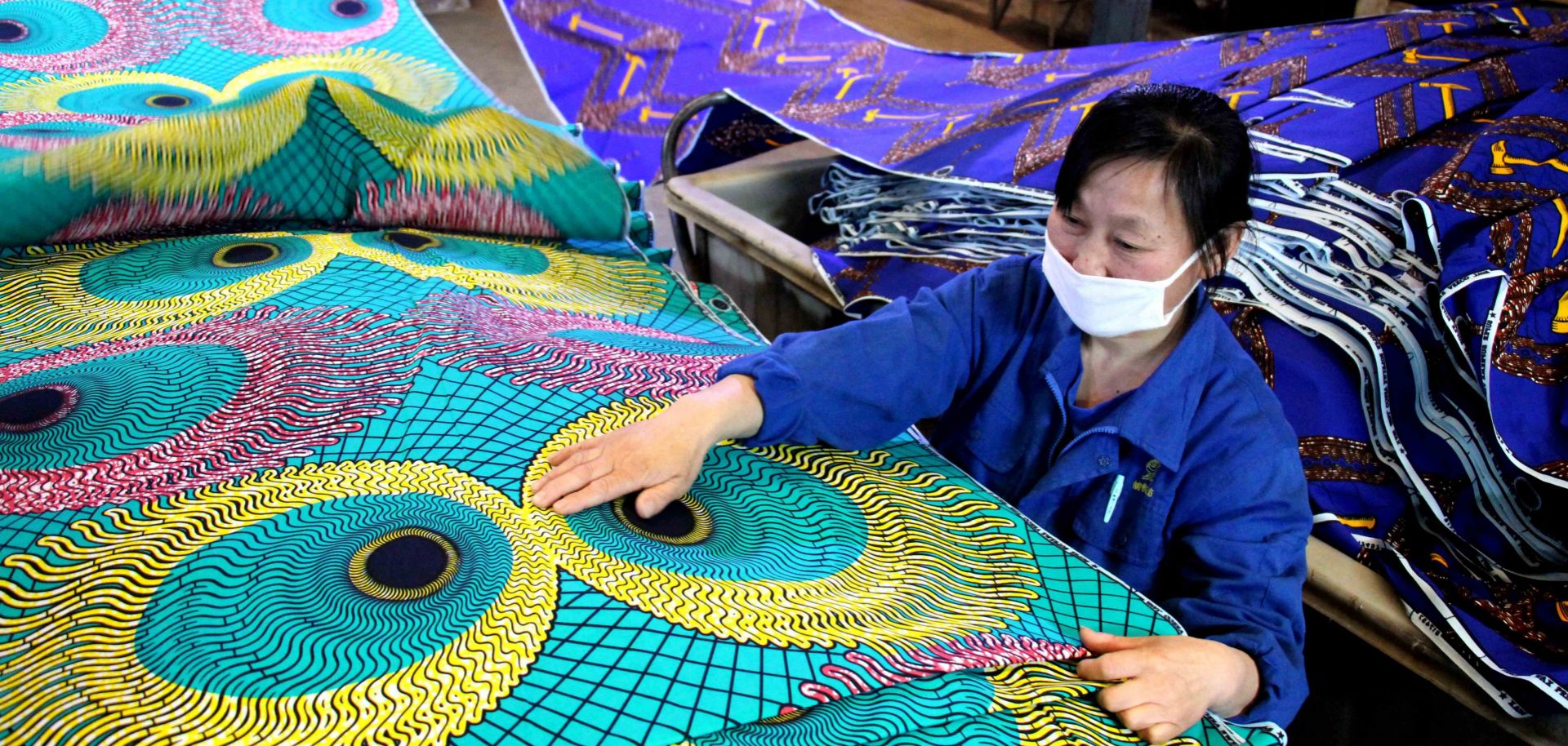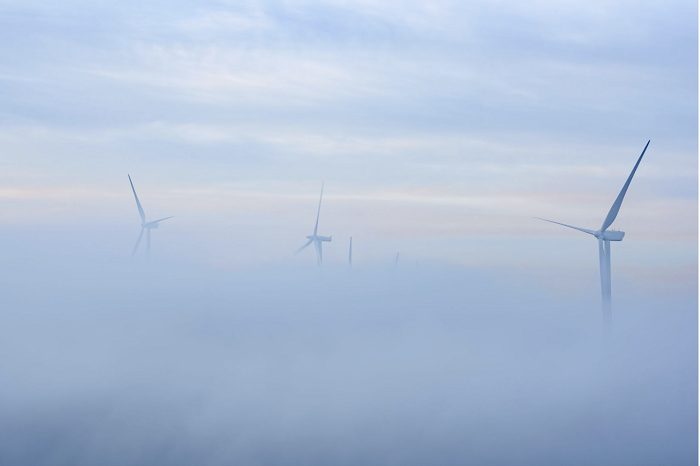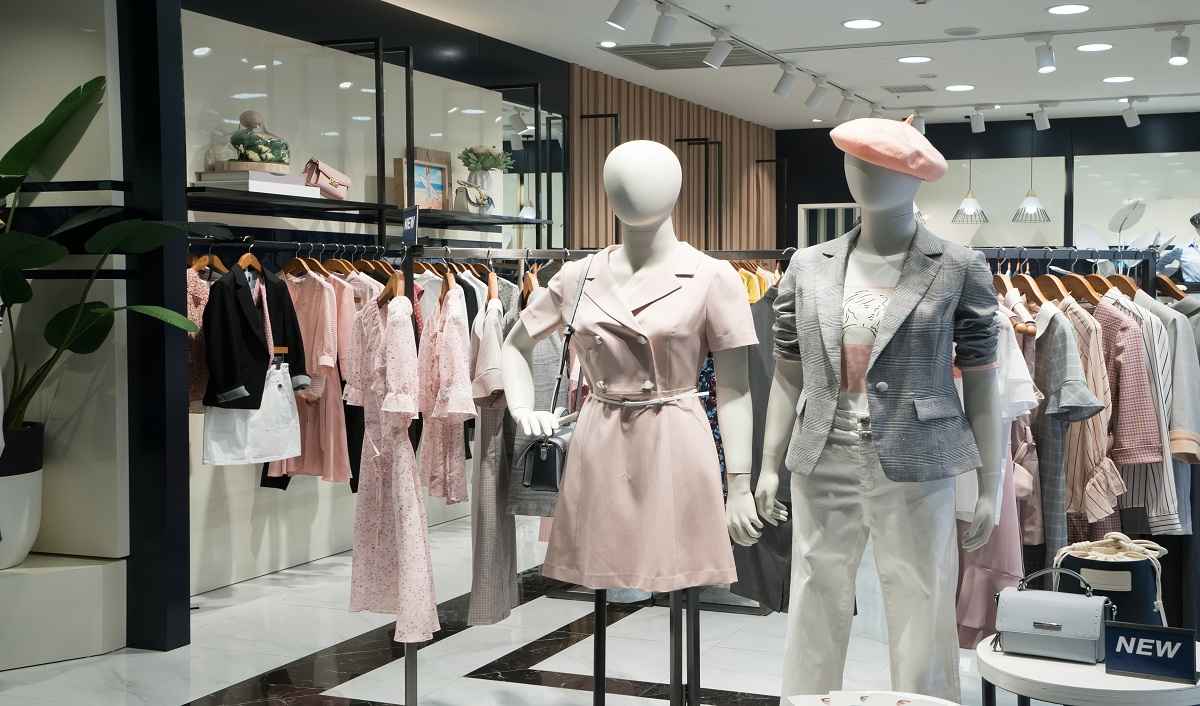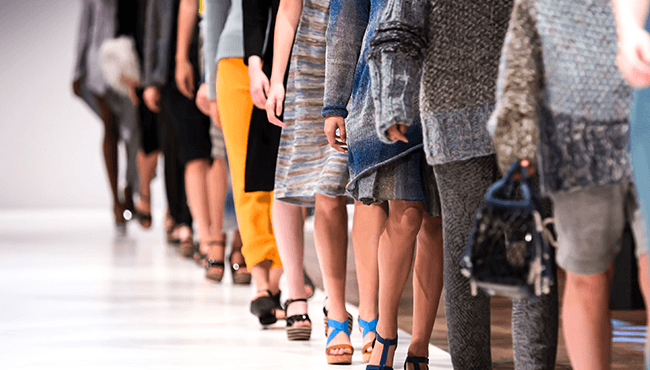FW
Performance Days, a leading platform for functional sports and work wear fabrics, announced the launch of the US Functional Fabric Fair spearheaded by Performance Days, in partnership with Reed Exhibitions. The sourcing event for high performance functional fabrics and accessories will be held during the New York Market Week from July 23rd and 24th, and co-located with multiple fashion market events at the Javits Center.
Steve McCullough of Reed Exhibitions informs, “Following the successful launch of a performance and sports textile sourcing program within the PGA Merchandise Show and through considerable industry research, a need for a US-based functional fabric fair has become apparent. The biannual Performance Days Functional Fabric Fair in Germany is the gold standard of the industry and we are especially pleased to organise the US event in cooperation, maximising their breadth of proven expertise to deliver a fair where tomorrow’s textile trends are on display today,” he added.
Marco Weichert, GM of Design & Development GmbH Textile Consult averred, fashion and function inspire each other more and more in our industry. This inaugural US Functional Fabric Fair powered by Performance Days is the first of its kind during New York’s Market Week to provide an opportune sourcing platform for performance materials and technical textiles in fashion, sportswear and athleisure collections.
The Fair will display the latest trends in fabric development for the functional textiles industry and provide an opportune marketplace in the US for the sourcing of high performance functional fabrics and accessories. The event will include exhibits, workshops, industry presentations, professional networking and matchmaking programmes.
Textiles manufacturers, suppliers and service providers will present their functional fabrics, membranes plus treatments, laminates, paddings, finishes, and accessories such as yarns, tapes, prints, buttons and zippers. Industry giants who are expected to attend include sports fashion designers, product managers, purchasing agents and textile decision makers representing active clothing and functional wear manufacturers.
The Tirupur Exporters Association (TEA) welcomed the government's move to enhance Merchandise Exports from Indian Scheme (MEIS) from 2 to 4 per cent. The association further requested the Centre to come up with a solution for the shortfall of 2.7 per cent incentives given to readymade garments and made ups post GST regime. Knitwear makers had raised concerns about cash crunch and deficit in government incentives post-GST as they felt recent developments had badly affected the industry.
They made several representations to the FM to clear the incentive deficit. Following this, the government increased Merchandise Exports from Indian Scheme from 2 per cent to 4 per cent for a seven months beginning November.
T R Vijayakumar, General Secretary of Tirupur Exporters Association says, the announcement has given much needed relief to the knitwear garment export sector. After the introduction of GST, government incentives given to the readymade garments took a different turn. Major incentives, including duty drawback, was drastically reduced. Total incentive rates were reduced to 8.7 per cent from 13.40 per cent and there is a deficit of 4.7 per cent. With the government's announcement of increasing the Merchandise Exports from Indian Scheme, the deficit has been reduced to 2.7 per cent, he added.
Association president Raja M Shanmugam has requested the government to incorporate the embedded tax and also announce revised remission of state levies (RoSL) and duty drawback rates, as government support was needed to enhance apparel exports.
The government has increased the Merchandise Export from India Scheme (MEIS) from 2 per cent to 4 per cent for all garments and made-ups and also increased the upper limit of Remission of State Levies (RoSL) for exports of cotton garments from 1.22 to 1.7 per cent and cotton made-ups from 1.55 per cent to 2.20 per cent. With respect to MEIS, the government has allocated Rs 1,143.15 crores for the year 2017 to 18 with effect from November 1 and Rs 685.89 crores for up to June 30, 2018 -19 to encourage employment generation.
P Nataraj, Chairman, The Southern India Mills’ Association (SIMA) has welcomed the move. However, he said the industry was expecting at least 2 to 3 per cent increase in the RoSL rates considering the various embedded/ blocked taxes of Central & State levies. He hoped that the government would consider the remaining embedded taxes while announcing revised duty drawback rates and ensure the same level of competitiveness that the industry had under special export garment package to enable the exporters to retain existing customers and remain competitive globally.
Nataraj says the drawback and RoSL rates notified after the implementation of GST are only interim relief as these benefits have not considered various embedded taxes and also inverted duty on fabric stage. He points out that several garment and made-ups exporting units have already curtailed their production by 20 to 30 per cent keeping several lakh of people out of jobs. He has appealed to the government to announce new duty drawback rates without further delay with effect from October 1, 2017 so that the financial stress caused to exporters could be minimised.
The government has announced post-GST rates for claiming rebate of state taxes under the scheme for Remission of State Levies (RoSL) on exports of readymade garments and made-ups to enhance exports. The government has also doubled the rates for incentives under an export promotion scheme MEIS to 4 per cent for readymade garments and made-ups.
Union textiles minister Smriti Irani in a series of tweets said post-GST rates for remission of state levies/taxes and enhanced Merchandise Exports from India Scheme (MEIS) rates will boost exports of garments and made-ups. “Announcement on post-GST rates of RoSL will be effective from 1 Oct 2017. Post-GST rates for remission of state levies/taxes will boost exports of garments and made-ups,” Irani tweeted. In another tweet, the minister wrote enhanced MEIS rates will boost exports of garments and made-ups from India.
AEPC was relieved that the increase in MEIS rates will help ensure fulfilment of orders for the Christmas season as it will help in releasing blocked capital. In a release, the Textiles Ministry said post-GST rates of RoSL are up to a maximum of 1.70 per cent for cotton garments; 1.25 per cent for MMF, silk and woolen garments; and 1.48 per cent for blended apparel.
The Ministry said the notification of post-GST RoSL rates for rebate of state levies/taxes is following the decision of the government to enhance exports and employment generation in the labour intensive textiles and apparel segment.
The Directorate General of Foreign Trade (DGFT) has enhanced rates for garments and made-ups to 4 per cent of value of exports from 2 per cent under MEIS. New MEIS rates are effective from November 1. Under the MEIS scheme, the commerce ministry gives duty benefits to several products. It provides duty benefits at 2 per cent, 3 per cent and 5 per cent depending upon the product and country. The DGFT said the rates for incentives under MEIS for two subsectors of textiles industry — readymade garments and made-ups — have been raised to 4 per cent of value of exports with effect from November 1 till June 30 next year.
Union Finance Minister Arun Jaitley met representatives of Surat's textile industry and assured them that the Centre will look into their grievances. Surat textiles industry body made a presentation to the Finance Minister seeking ease in procedures related to GST.
The Minister said the textile industry in Surat is "very positive about government's economic policies and supports GST." He added the industry has demanded that the procedures should be made simpler, especially for small textile industry, and he has invited their representatives to meet relevant officials in Delhi to resolve their issues. "I am happy that the textile industry of Surat, which is very progressive and which has made a name for itself in the entire world are very positive about government's economic policies and are in support of GST," Jaitley said.
"They expect the procedures should be made simpler, especially for small textile industry, so that they are not overburdened with procedural compliance. I have invited a small (delegation of) representatives to Delhi and put their facts before the concerned officials. The GST Council is trying for the same and we will also certainly do our best," he announced.
President of Federation of Surat Textile Traders Association Manoj Agarwal, who made representation before Jaitley said, they had told the FM that Surat's textile industry is badly hurt due to GST and asked him to address their problems. He said they want GST but are not able to follow GST rules.
International leader in colour and specialty chemicals Archroma, has become a signatory of the United Nations (UN) Global Compact, joins the world’s leading voluntary corporate social responsibility initiative, with over 9,500 participating companies from 160 countries. The company is committed to help make the industry more sustainable.
Archroma has formally pledged to support and promote the UN Global Compact’s 10 principles in areas of human rights, labour, environment and anti-corruption. Alexander Wessels, CEO of Archroma says, "Archroma shares the UN Global Compact goal to contribute to a more stable and inclusive global market and help build prosperous and thriving societies. We also believe that advancing the cause of sustainability is an on-going effort and that being a participant to the UN Global Compact will help us to walk further down this path and to convince those in our sphere of influence to join along."
The company introduced several innovations to make textile or paper manufacturing more sustainable, such as its biomass-based EarthColors range or non-fluorinated Smartrepel water-repellent finish. Archroma also implemented advanced, resource-saving manufacturing processes at many of its production facilities, such as its zero discharge facility in Jamshoro, Pakistan.
Since the last two years, the US fashion group Ralph Lauren has been transforming its business model to respond more effectively to industry dynamics and challenges faced. Patrice Louvet, the group's new General Manager, said he is ploughing on in his predecessor's tracks. Louvet is working closely with Ralph Lauren and has revealed the three major fronts the fashion group is engaged in. He felt a need to improve sales performance and the distribution network's quality. He is also looking at putting in new energy into products and marketing to attract the new generation of consumers and also looking at expanding the brand’s digital footprint and its international presence.
The brand sees China as a key area of focus. The size of Ralph Lauren's business in Asia is relatively small. In the last quarter, closed at the end of September, the group's sales in Asia grew 4 per cent at constant exchange rates, however, at current rate revenue in the region remained stable at under $217 million. On the positive side, margins in the region are growing. After being in the red in Asia for a long time, in the last quarter the group generated an operating income of $26.5 million (as against $203 million in North America).
In 2017 fiscal year, they expect to generate a revenue of $50 million in mainland China, equivalent to less than 1 per cent of our global revenue. This is significantly higher than majority of competitors, who have a greater penetration in the region. As per data by market research firm Millward Brown, Polo's brand awareness in China is as high as 83 per cent.
A MoU has been inked in India between Madhya Pradesh State Skill Development Mission (MPSSDM) and the National Institute of Fashion Technology (NIFT), Bhopal to train the state’s youth in the textile sector under the Mukhya Mantri Kaushalya Yojana (MMKY). Under the agreement, NIFT will impart practical training to around 10,000 youth and develop skills to make them employable.
State domicile and Class 8 pass-outs will be eligible for this month-long training course which is expected to begin in the next 15 days. Those applying for the course will be offered training on batch-basis. Each batch will have 30 candidates. At least 70 per cent of total trained personnel will be recruited post training. Those trained under the scheme will be offered 4-Grade certificates by the Ministry of Skill Development and Entrepreneurship.
Training will be offered in 10 or 12 courses depending on needs of the industry. Initially, four courses related to spinning will be offered. Further, NIFT-TEA College of Knitwear Fashion and the Ministry of Rural Development also partnered recently to start a training programme and train the unskilled youth in the apparel industry under DDU-GKY (Deen Dayal Upadhyaya Grameen Kaushalya Yojana) in Tirupur.
British retailer Mothercare, which specialises in products for expectant mothers and children, recorded a 1.7 per cent decline in total international sales to £393.2 million in first half of fiscal 2017. During the period under review, the retailer’s worldwide sales also witnessed a 1.4 per cent drop to settle at £627.9 million.
In the UK market Mothercare’s sales dopped by 1 per cent to £229 million during the six-month period, while adjusted profits for their international business fell by 208 per cent to £14.9 million. Total company revenues plunged 2.4 per cent from £347.7 million to £339.5 million despite challenging market conditions in the Middle East.
During the months under review, the retailer opened 68 new stores while closing down 83 stores that could not perform and around 127 stores were refurbished into the new modern format.
The Indonesian government continues to spur the growth of textile industry that has a capacity of absorbing mass labour. Their labour absorption is forecast to touch 2.73 million people. The Ministry of Industry targets the growth rate of textile and textile products (TPT) in Indonesia in 2017 to reach 2.59 per cent with textile export of around $12.09 billion. The development of this industry is expected to boost export and market share of national products worldwide.
The next two years, the growth rate of the textile industry is expected to be higher at 3.56 per cent with export in terms of value at US $ 15 billion and the absorption of its workforce can reach 3.11 million people.
To continue to promote the development of the national textile industry, the Indonesian Ministry of Industry cooperated with the Indonesian Textile Association and the Association of Indonesian Synthetic Fiber Manufacturers by compiling a roadmap of the national textile and textile product industry which is integrated from upstream to downstream from Sabang to Merauke from Miangas to Rote Island, 2035.
Indonesia's textile and textile production industry is known for its good quality in the international market, so it can be a strong capital in expanding the distribution of textile products.
The factor in enhancing the demand for textile products was through the implementation of fiscal and non-fiscal policies of several economic policy packages that have been implemented by the government. This is taken as a step to create a right investment climate that is conductive to assist in business activities such as vocational education and also play a role in the research and development of textile and textile products industries.
In addition to participating in improving the performance of the textile and textile products industry by issuing such policies, the government also helps in increasing the supply chain especially in supplying cotton raw materials.
The Ministry of Industry along with stakeholders will make a working visit to the United States to look at the availability of raw materials which will be imported from and stored in the warehouse of Indonesia Bonded Logistics Centre.

